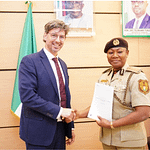The real question today is not whether Africa is digital. It is. The question is: can digital growth be scaled sustainably, secured effectively, and designed to truly engage people across diverse realities?
Africa’s digital economy is expanding rapidly. In just over a decade, the continent has leapfrogged legacy systems, embraced mobile connectivity as its default infrastructure, and opened the floodgates to new digital services—from mobile money and content streaming to e-learning, e-health, and e-commerce. Yet, as this growth accelerates, so too does the complexity of building a system that works not just in theory, but in practice, for users, businesses, and institutions alike.
The real question today is not whether Africa is digital. It is. The question is: can digital growth be scaled sustainably, secured effectively, and designed to truly engage people across diverse realities?
That question took center stage at MEF Connects Content & Payments: Africa, sponsored by Digital Virgo, held in Nairobi on June 19, 2025, where I had the opportunity to moderate a forward-looking panel titled Scaling, Securing, Engaging: Voices Shaping Africa’s Digital Growth. We were joined by a panel of three leaders positioned at different yet interconnected points of the digital value chain: Catherine Njari, Senior Manager of Strategy & Partnerships at Safaricom PLC, Jérôme Dutoit, Telcos Relationship Lead at Cafeyn & Kidjo and Eric Tiberghien, Chief Operating Officer at Digital Virgo.
Though their vantage points differed, telco, content, and infrastructure, their perspectives revealed something important: to truly accelerate Africa’s digital future, growth must be rooted in relevance, trust, and sustainability.

The Imperative of Local Fit: Content Isn’t King Without Context
The first half of the digital journey—getting people online—is already well underway. With more than 520 million mobile subscribers and over 80% of Africa’s internet traffic flowing through mobile devices, the infrastructure footprint continues to expand. But the next chapter requires a shift in mindset: from building broad networks to designing services that truly fit the local environment.
As Catherine Njari of Safaricom pointed out, one of the core challenges is relevance. “With content,” she explained, “we must understand what the customer wants—not just throw content at him without knowing if he even wants it.” This isn’t just about language or distribution, it’s about empathy and insight. If content doesn’t reflect local needs, values, and cultural rhythms, it will miss its mark entirely.
This sentiment was echoed by Jérôme Dutoit, whose work with Cafeyn and Kidjo underscores the risks of underestimating local complexity. Even successful global offerings must be adapted to align with African preferences, device usage patterns, and payment behaviours. In his view, Africa represents an enormous opportunity, but only for those willing to invest in localized models over copy-paste strategies.
From a content provider’s perspective, Dutoit noted, the most powerful unlock for Africa’s digital ecosystem is access to affordable or better, unlimited mobile data. Without it, even the most compelling content remains out of reach for large segments of the population. Cafeyn and Kidjo were drawn to the region by the rise of mobile-first audiences—especially among youth and young parents—and a growing demand for curated, trustworthy, and localized content. Yet scaling these services depends on zero-rated or discounted data access, joint marketing with telcos, and closer alignment around KPIs, retention, and data sharing.
Eric Tiberghien, representing Digital Virgo, reinforced this approach with a clear statement: “Africa is not a country. It’s more than 50 markets—each with unique expectations and cultures.” He described how Digital Virgo tailors content formats, pricing, and billing flows to specific national contexts. A prime example: their partnership with Ethio Telecom in Ethiopia to launch Ethio Arena, a mobile-first esports and editorial hub deeply rooted in Ethiopian youth culture. The project delivered low churn and high engagement, showing what’s possible when services are built with local realities in mind.
“One of the most frequent questions I get from international content providers is: “What do I need to enter Africa?” I always say: Africa is not a country. It’s more than 50 markets — each one with unique expectations and cultures. What works in Ghana won’t necessarily work in Botswana. What drives engagement in Ethiopia might fail in Ivory Coast. At Digital Virgo, we tailor our content to local expectations: language, formats, devices, and pricing. It’s not just about translation. It’s about cultural codes, local creators, and meaningful usage.”
– Eric Tiberghien, Chief Operating Officer, Digital Virgo
Securing and Engaging: Trust is the Real Infrastructure
As African markets digitize, digital trust becomes as important as digital access. Users need to feel safe, in control, and supported—not just at the point of entry, but throughout the lifecycle of their interaction with a service. Security isn’t just a technical layer—it’s about making the entire digital journey transparent, fair, and user-controlled.
Eric Tiberghien offered a detailed roadmap for how this trust can be built. Digital Virgo’s framework is structured around three pillars:
- The Right Product – services that respond to real demand
- A Smooth Customer Journey – clear onboarding, transparent pricing, intuitive support
- Ecosystem Sustainability – working within (or advocating for) regulatory structures that prevent misuse
In practice, this means rejecting grey-market affiliate ad traffic, relying instead on audited ad networks. It also means implementing secure billing flows—such as 2-click confirmation for mobile networks or MSISDN+PIN for Wi-Fi users—and collaborating with cybersecurity partners to detect and block fraudulent behavior in real time.
But security doesn’t end at payment. “Post-purchase care is critical,” Tiberghien noted. Digital Virgo has deployed self-care platforms in over 40 countries, enabling users to unsubscribe, access billing logs, or reach human support through WhatsApp, SMS, IVR, live chat, and even Google Ads. In Morocco, for instance, their partnership with Orange led to a 40% drop in response times, a major improvement in user experience.
At the heart of this system is a commitment to user agency. Engagement, Eric argued, is not about locking users in. It’s about creating environments where users stay because the service respects their autonomy. When people feel they can easily understand, control, and exit a service, their trust deepens—and so does their willingness to re-engage.
Too often, digital services focus on acquisition metrics, overlooking the need for trustworthy service design. But in high-growth digital markets like Africa, users are becoming more discerning. If services are confusing, if opt-outs are hidden, or if support is inaccessible, they will walk away.
By treating transparency and support as essential, Digital Virgo is helping reshape what engagement looks like: not a race to gain users, but a commitment to keep them through clarity, responsiveness, and respect.
The Role of Regulation—Or the Lack of It
Regulatory gaps emerged as another major pressure point. In many markets, panelists noted, there’s little or no formal oversight of mobile billing practices. This opens the door to inconsistent standards, unfair billing, and a general erosion of user trust.
Tiberghien argued that self-regulation or shared governance frameworks are the only viable solution in the absence of state-led oversight. He cited bodies like WASPA in South Africa, AIMM in the UK, and ARCEP in Burkina Faso as models that offer clarity and protection for both users and service providers.
But in markets where no such frameworks exist, operators must take the lead. “In unregulated markets, we apply internal standards and advocate for stronger governance,” he said.
Partnering for Progress: Building a Sustainable Ecosystem
For digital ecosystems to flourish, strategic partnerships are paramount. Njari elaborated on Safaricom’s approach to partnerships, focusing on what truly makes collaboration valuable. This often extends beyond mere technical integration to shared goals of user satisfaction and market relevance.
From the content side, Dutoit emphasized that effective partnerships are essential to scaling services like Cafeyn and Kidjo. He highlighted the need for stronger telco support—particularly around zero-rated or discounted data—and joint marketing efforts to raise awareness. Equally important is aligning performance metrics and retention strategies, which requires more transparency and collaboration between content providers and operators. Success, he noted, depends on co-creating value, not just exchanging services.
The Africa We Build Digitally Must Be Trusted
Africa is entering what could become its defining digital decade. The numbers are promising. The infrastructure is catching up. But to scale is not merely to grow; it is to adapt with purpose. To secure is not just to guard systems; it is to earn and keep trust. To engage is not simply to reach users; it is to understand and serve them.
If relevance, transparency, and shared responsibility guide how we build, Africa’s digital future won’t just be mobile-first—it will be trust-first. And that shift will make all the difference.
Throughout the discussion, one truth kept rising to the surface: this opportunity cannot be rushed. Rapid growth without local context. Monetization without trust. Connectivity without usability: these are the pitfalls that can quietly widen the gap between reach and real impact.














